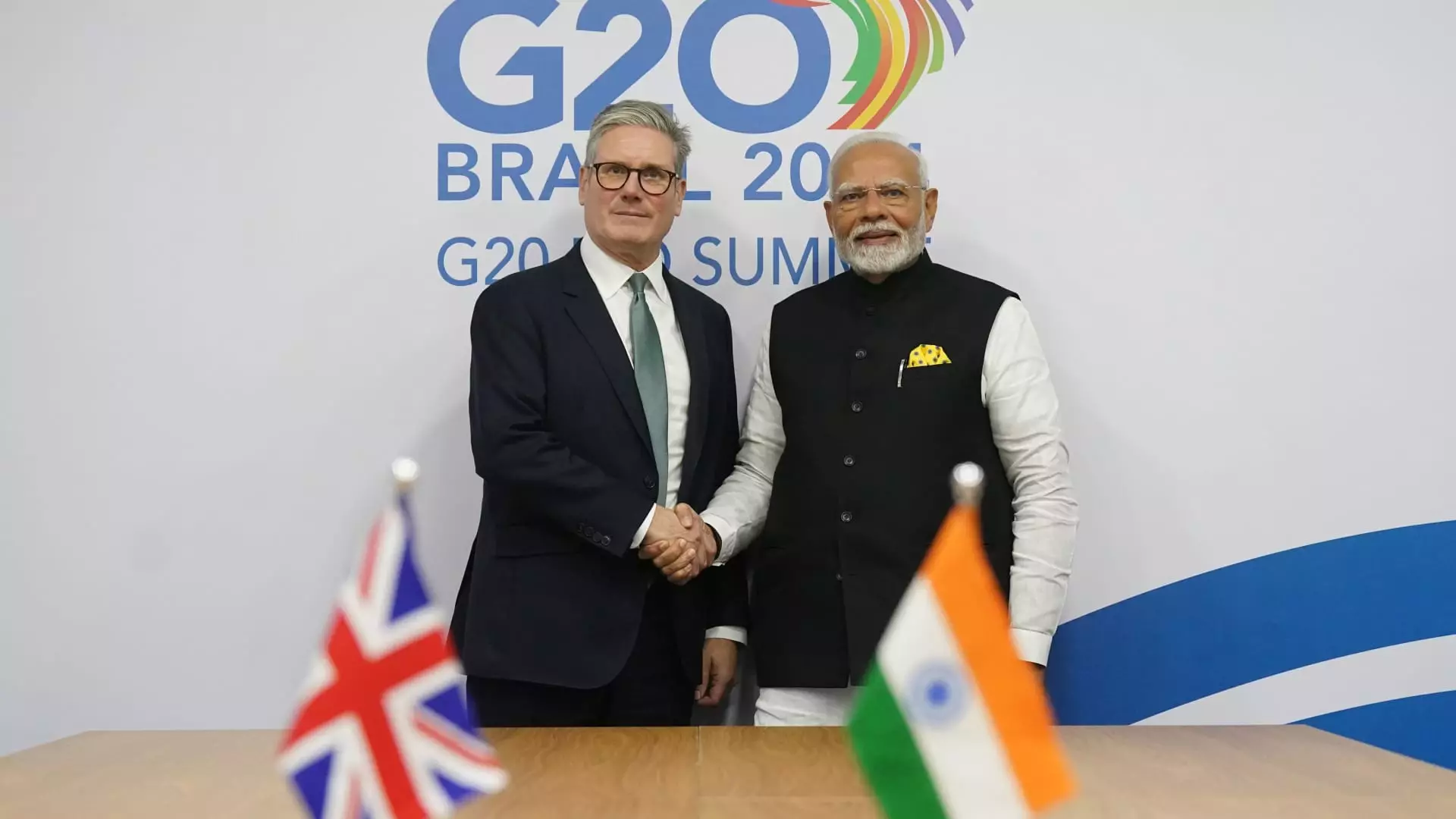In recent times, the United States has signaled a retreat from the global diplomatic stage, particularly by scaling back its involvement in the G20. This move is not merely about strategic repositioning; it signifies a broader disillusionment with multilateral institutions that have historically served as platforms for collaborative economic governance. The U.S., once a champion of global economic stability, now appears to be embracing a myopic “America First” ethos that undermines the very foundation of international cooperation. This trend raises serious questions about the viability of coordinated global responses to crises and the long-term stability of the international order.
The Biden administration’s cautious approach appears to be overshadowed by the inkling of skepticism rooted in past policies. Under the Trump presidency, the U.S. actively withdrew from several multilateral commitments, including the World Health Organization and the Paris Agreement, signaling an agenda that prioritized unilateral interests over collective solutions. The decision to reduce participation in the G20’s myriad working groups—covering energy, health, trade, and climate issues—reflects a prioritization of domestic concerns over international stability. Such strategic narrowing risks fragmenting global economic management, leaving complex issues like climate change, debt crises, and equitable growth inadequately addressed.
This shift jeopardizes the very essence of multilateral diplomacy. The G20, established after the Asian financial crisis, has historically served as a vital forum for dialogue among major economies, fostering stability during turbulent times. Its expansion over the years demonstrates an acknowledgment of interconnected economic risks that transcend national borders. Diluting its scope and influence in favor of a simplified, minimalist approach suggests that the U.S. is abandoning its leadership role at a critical juncture when multinational cooperation is most needed.
The Consequences for Global Economic Stability and the Developing World
The consequences of America’s retrenchment are multifaceted, particularly impacting developing nations that rely on the stability and resources fostered through global institutions. Critics argue that the reduced U.S. engagement threatens to weaken the coherence of international efforts to manage debt, facilitate development, and combat climate change. Notably, the emphasis on streamlining the G20’s agenda could marginalize vital issues—such as sustainable development and equitable growth—that are essential for tackling inequality and fostering resilience among poorer countries.
Activists and representatives of developing nations have expressed concern that a narrower G20 might become less effective as a forum for advancing inclusive growth. The linkages between financial stability, development, and social progress are too intertwined to be overlooked. As the U.S. pulls back, other countries such as China and India might be tempted to fill the vacuum, but their interests are often misaligned with those of the global south. This could lead to a fragmented approach where regional powers pursue divergent agendas, undermining collective efforts to address global crises, from food insecurity to climate change adaptation.
Furthermore, the Biden administration’s rejection of measures like a global minimum tax on the ultra-wealthy demonstrates a reluctance to confront the systemic inequalities that fuel economic instability. By resisting such initiatives, the U.S. risks exacerbating international tensions and fostering a sense of mistrust among allies who see the need for a fairer, more sustainable global tax system. This reluctance to engage with broader reforms may embolden other nations to pursue protectionist and nationalist policies, threatening the fragile fabric of international economic cooperation.
The Risks of U.S. Leadership Decline and the Rise of Alternative Powers
One of the most alarming consequences of the U.S. stepping back from active engagement is the potential for other nations—particularly China and Russia—to assume leadership roles in international forums. While this might seem advantageous in the short term, it raises the risk of power being wielded without the checks and balances that American influence historically provided. The United States’s hesitance could embolden these countries to push agendas that conflict with liberal democratic values, fostering a global order less committed to human rights, transparency, and inclusive development.
President Trump’s previous policies indicated a prefers the idea of bilateral dealings over multilateral commitments, viewing multilateral institutions as inefficient or even detrimental to U.S. interests. If this perspective persists, we risk a bifurcated world where global stability hinges increasingly on the whims of sovereign nations driven by strategic hegemonies rather than shared values. Such a landscape could lead to heightened tensions, economic decoupling, and an erosion of the rules-based order that has underpinned international peace since 1945.
On the domestic front, this retreat could be seen as shortsighted—failing to recognize that multilateral institutions serve U.S. interests by fostering global stability, market access, and shared security. Ignoring these avenues for collaboration might secure short-term political gains but ultimately jeopardize America’s influence in shaping the future of global governance. The risk is that, by diminishing its role, the U.S. cedes leadership to less accountable actors, creating a more chaotic, unpredictable international environment.
Is There Still Hope for a Balanced, Centered Approach?
Despite the mounting risks, there remains a critical voice advocating for a pragmatic, centrist approach to international engagement. Recognizing the importance of multilateralism is not synonymous with blind allegiance to outdated frameworks; rather, it’s about reforming and refocusing these institutions to better serve today’s needs. Leaders like Biden and policymakers who favor strengthening the diplomatic fabric demonstrate an understanding that global problems require multi-dimensional solutions—solutions that hinge on shared responsibility and collective action.
A balanced approach involves abandoning the extremes of isolationism and reckless multilateralism, instead pursuing a measured strategy that emphasizes core issues like financial stability, sustainable development, and fair trade policies. It also entails pushing back against efforts to overreach with initiatives like the global minimum tax, advocating for issues that genuinely promote economic justice and climate resilience.
TRULY effective leadership will recognize that, in an interconnected world, unilateral policies are shortsighted and ultimately self-defeating. Restoring faith in multilateral institutions, reforming their mandates, and fostering inclusive dialogue are essential steps toward restoring global stability. The U.S. can—and should—play a crucial role in guiding a more cooperative, just, and sustainable international order, rather than relinquishing its influence out of short-sighted skepticism.


Leave a Reply